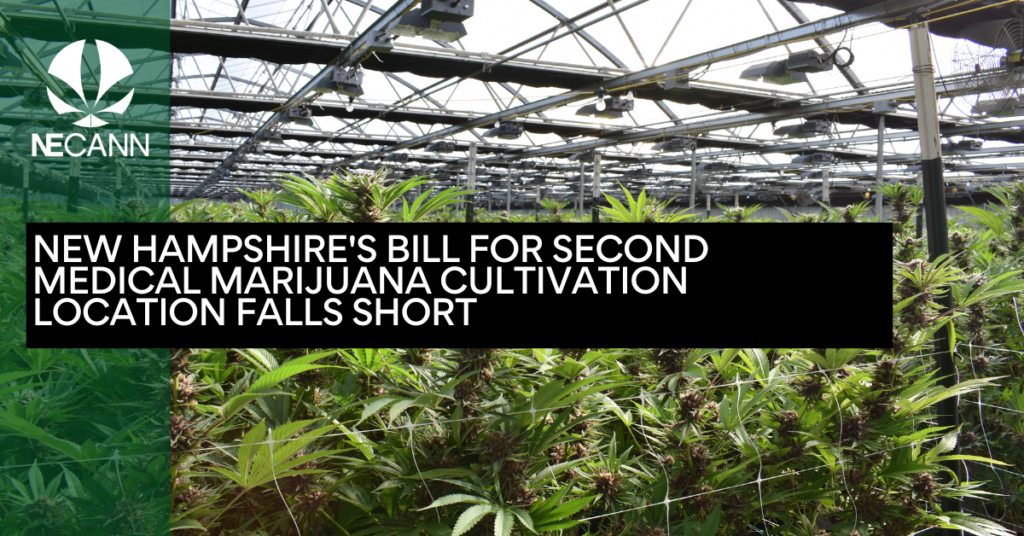An effort in New Hampshire to revive a bill that would have allowed medical marijuana operators to establish second cultivation locations—including in greenhouses—fell short. The House of Representatives successfully voted to override Governor Chris Sununu’s veto of HB 1581, but later in the day, the Senate opted to sustain the veto.
The votes occurred during a return to the State House known as “veto day,” when lawmakers consider overriding the governor’s rejections of bills passed during the session. The House voted 270-55 in favor of overturning the veto, but the Senate’s 14-9 vote ultimately blocked the bill.
Current law in New Hampshire mandates that marijuana must be grown in secure, indoor facilities, which supporters of the bill argued limited opportunities for operators. They claimed that allowing greenhouses would provide a less costly and more environmentally friendly alternative.
Rep. Erica Layon (R) expressed her support for the bill ahead of the House vote, stating, “Quite frankly, we don’t need anything more than what was passed. It was a beautifully written, elegant bill that added only the language we needed.”
Governor Sununu vetoed the measure in July, citing a lack of detail regarding safety, security, and location requirements. “These details are necessary to ensure appropriate controls on a regulated substance,” he explained. Layon countered that existing administrative rules already covered safety and security concerns.
Under existing law, alternative treatment centers (ATCs) are required to grow marijuana in secure, indoor locations, prohibiting the use of semi-outdoor structures like greenhouses. Rep. Suzanne Vail (D), the bill’s sponsor, argued that any new facilities would undergo the same approval process as original dispensaries, adhering to rigorous security requirements already in place.
Medical marijuana operators expressed disappointment at the outcome. Matt Simon, director of public and government relations at GraniteLeaf Cannabis, remarked, “A lot of people are having a hard time understanding why this was even considered controversial.”
Simon further noted the irony of New Hampshire being known as the “Live Free or Die” state while some elected officials maintain what he termed “irrational, authoritarian views” on marijuana policy. He expressed hope that the upcoming elections could shift this dynamic.
Since the end of the legislative session, Governor Sununu has approved some minor marijuana reforms, including a law allowing doctors to recommend cannabis for any debilitating condition, rather than limiting recommendations to specific diagnoses.
Efforts to legalize adult-use marijuana in New Hampshire have faced challenges, with lawmakers narrowly shooting down a legalization measure in June. Accusations arose that politicians were leveraging the issue for electoral gains. However, many who opposed the bill cited concerns over its state-controlled franchise model, which would grant the state significant control over retail operations and consumer pricing.
Polling data indicates that a significant majority of New Hampshire residents support marijuana legalization, with 61% backing a recent bill. With elections approaching, voters will soon decide on new lawmakers and a new governor, as Sununu has opted not to seek reelection. The two major party candidates are sharply divided on the issue, with Democrat Joyce Craig supporting legalization and Republican Kelly Ayotte opposing it.
Craig has expressed her preference for a state-run cannabis industry that prioritizes local ownership, while Ayotte has dismissed that approach as unrealistic.
The complex dynamics surrounding marijuana reform in New Hampshire remain a topic of discussion, with lawmakers continuing to explore various avenues for expanding access and establishing a regulated market.
For more updates on cannabis industry news and business insights, subscribe to our daily newsletter.




